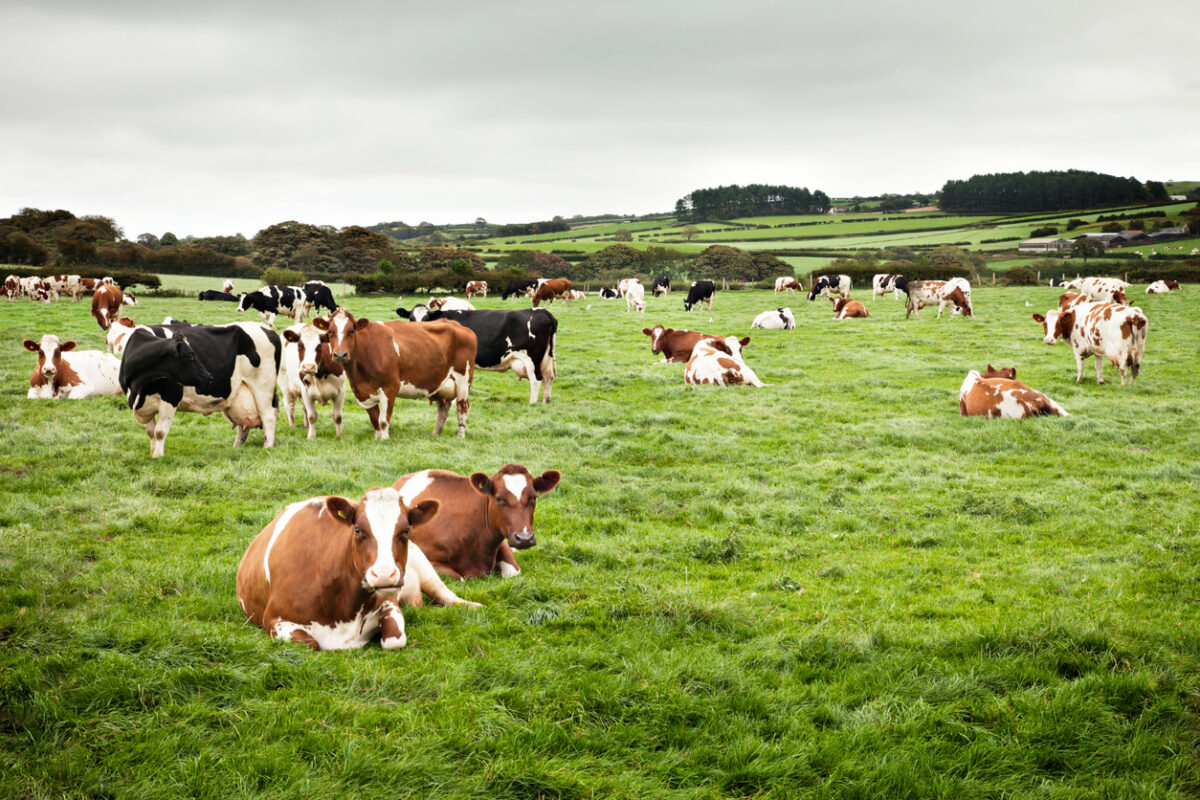UK academics join Government research network to push agri-food sector to net zero

Academics from universities around the UK have joined a Government-backed research network worth £5 million, in a bid to push the country’s agri-food industry to net zero by 2050.
The AgriFood4NetZero Network+ will be led by four researchers: Professor Tim Benton from the University of Leeds, Dr Angelina Sanderson Bellamy from the University of the West of England, Professor Sarah Bridle from the University of York, and Professor Neil Ward from the University of East Anglia.
The team, which is comprised of academics working in a variety of fields like natural, physical, and social sciences, will work to create new effective ways for reducing greenhouse gas emissions in the agri-food sector.
Agriculture is responsible for around 10% of the UK’s greenhouse gas emissions according to recent research. As the country makes plans to reach net zero, it aims to find a balance between the production of greenhouse gases and the amount of carbon emissions removed from the atmosphere.
Tim Benton an academic from the School of Biology at the University of Leeds said: “The agri-food industry extends far beyond farming. It shapes how food gets to our supermarkets and kitchens, the manufacturing process, waste management and more.
“AgriFood4NetZero Network+ will take a whole systems approach, considering all aspects of the wider agri-food system and agri-based ecosystem services.”
The researchers will also work together with the Government, industry stakeholders and the public to develop their ideas.
Part of their work will include improving environmental sustainability in a broader sense, boosting biodiversity, maintaining healthy ecosystems, encouraging healthy consumer habits, and reducing the negative environmental impact of international trade.
Project Co-Lead Dr Angelina Sanderson Bellamy of the University of the West of England said: “The scale and urgency of the challenge means the old ways of establishing and settling upon research priorities will not do. It is vital that researchers and stakeholders come together in a spirit of openness and collaboration, and with real urgency, to mobilise ideas and resources around advancing the transition.
“What will be the innovations we want to invest in and scale up? These are the challenges we will seek to address in the next three years.”
As well as being supported by specialist advisors, seven other co-investigators from the UK will also help the team with the project, including Professor Nigel Scollan, Director of the Institute for Global Food Security (IGFS) at Queen’s University, Belfast.
Professor Nigel Scollan said: “This is an exciting and timely initiative and of global importance. Climate change is the major challenge facing us all and extreme weather events are already decimating crop yields.
“The war in Ukraine, the Covid pandemic and the cost-of-living crisis are further impacting food systems and it is imperative that scientists join forces, in partnership with other stakeholders, to find better, more sustainable ways of feeding ourselves and accelerating towards Net Zero.”
The research network is being funded for the next three years by UK Research and Innovation (UKRI) and four of its research councils: Biotechnology and Biological Sciences Research Council (BBSRC); Economic and Social Research Council (ESRC); Engineering and Physical Sciences Research Council (EPSRC); Natural Environment Research Council (NERC).
As consumers become more concerned with climate change, their relationships with brands are shifting as a result. Find out how in this Food Matters Live Podcast episode:





